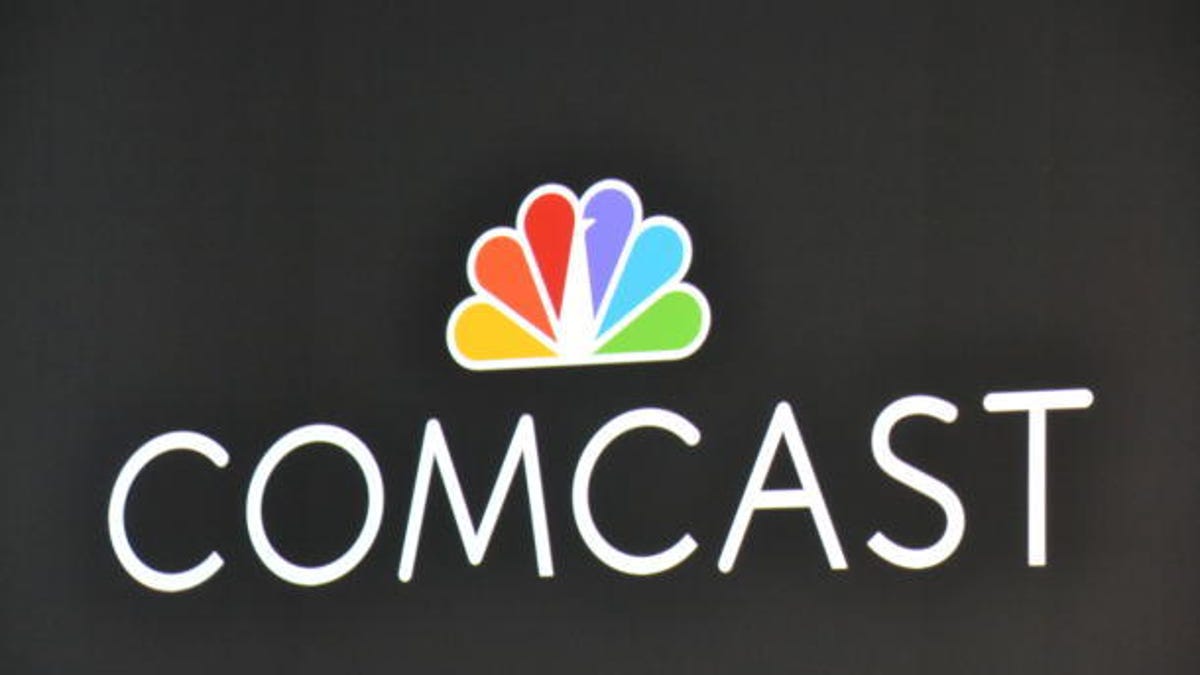No penalty for Comcast if merger with Time Warner Cable fails
Comcast has risked almost nothing in its $45.2 billion bid to buy Time Warner Cable, according to a filing with the SEC.

Comcast negotiated an easy escape hatch if regulators put too much heat on the $45.2 billion merger with Time Warner Cable, according to a regulatory filing Thursday.
According to the S4 filed with the Securities and Exchange Commission on Thursday, Comcast will not owe Time Warner Cable a breakup fee if the deal falls through due to regulatory issues. The filing also indicated that Time Warner Cable CEO Rob Marcus, who had only been on the job as CEO for two months before the merger was announced, will receive an $80 million severance package should the deal be completed and he step down as CEO. Marcus had been Time Warner Cable's chief operating officer and was instrumental in putting together the deal with Comcast, the filing also indicates.
Comcast is the nation's largest cable operator and Time Warner Cable is the second largest when considering total subscriptions. And because of their status as the No. 1 and No. 2 cable operators in the US, the biggest hurdle to a deal between the two companies is approval from regulators.
Even though the two companies do not compete directly against each other in almost any market, there are still concerns that an even bigger Comcast could wield too much power in terms of negotiations with content owners. There is also a fear among consumer advocates and some lawmakers, such as Senator Al Franken (D-Minn.) that Comcast could use its larger footprint and control over broadband infrastructure to violate Net neutrality principles by unfairly blocking or slowing traffic of online video competitors to benefit its own services.
Franken sent a letter to the Department of Justice on Thursday expressing his concerns regarding Comcast's potential to violate Open Internet principles. And he asked the agency to take a close look at the deal to ensure that consumers are protected.
In spite of these concerns, most experts say that it's unlikely that federal regulators would reject the merger outright. Instead, it's more likely that the companies will have to agree to a set of conditions in order to get the deal approved. But the S4 filing suggests that Comcast has an easy out if the conditions inflicted by regulators are too extreme.
According to the filing, Comcast can walk away from the deal without penalty if it is consistent in "scope and magnitude with the conditions and actions...required or imposed by any governmental authorities in connection with acquisitions of US cable systems in the past 12 years with a purchase price of at least $500 million."
Analyst Paul Gallant from Guggenheim Partners points out in a note to investors that "this is a fairly low bar for Comcast to walk because conditions on prior cable transactions (other than Comcast-NBCU) have been quite limited. So that S4 language underscores our view that the main regulatory risk to the deal is probably not outright rejection by the FCC and DOJ, but one or more conditions that Comcast decides are unacceptable."
He speculates that the fact that it would be easy for Comcast to walk away from the deal combined with the lack of a breakup fee could make the Federal Communications Commission and the Department of Justice reluctant to impose "excessive" conditions. But he also reasoned that because the FCC and Justice Department are controlled by Democrats during an election year, there will likely be pressure to impose stricter restrictions on the merger. He said he thinks it's unlikely that regulators will simply be all right with extending conditions imposed on Comcast in the NBC Universal merger from a couple of years ago.
He also speculated on some of the possible conditions that the FCC might be considering that could be most problematic to Comcast.
These might include:
- Regulation of peering relationships among Internet providers.
- Oversight of how the company bundles video channels as part of its TV packages.
- Requirements to sell NBC Universal content to over-the-top Internet video providers, such as Netflix and Amazon.
- Oversight of broadband pricing.
Another potential issue that might affect the severity of the conditions on the merger is a report from the New York Post on Wednesday that New York Governor Andrew Cuomo is considering pushing new state rules that would give state cable regulators more power in approving mergers that affect consumers in the state.
Still, even with increased scrutiny from state regulators, Gallant said he thinks the deal would still get approved. But he thinks that such state oversight might increase the pressure for more conditions on Comcast. And again because of Comcast's easy escape hatch, the company could decide to pull plug on the merger with no penalty if the conditions become too onerous.
It will be easier to predict the scope of the conditions that might be imposed by regulators once parties opposing the merger begin responding to the Comcast filing at the FCC, Gallant said. This is likely to happen in May.

